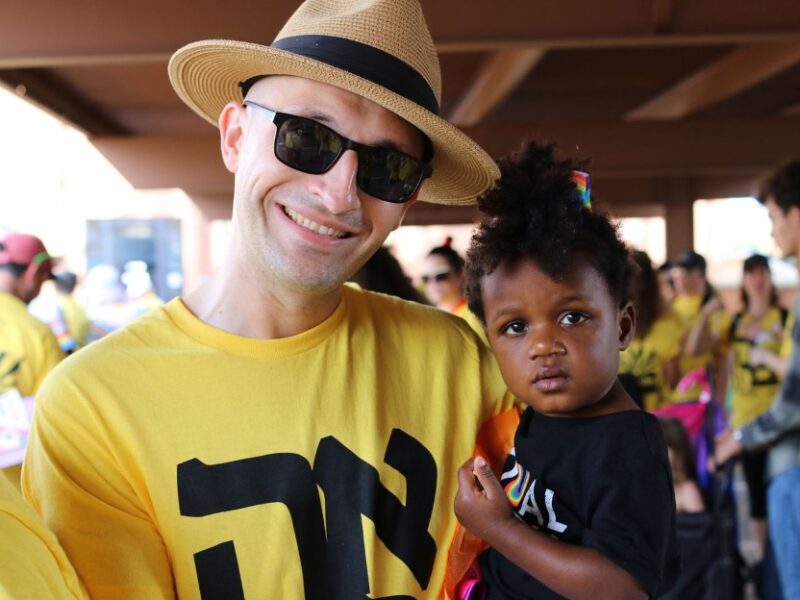We asked Rabbi Jeremy Schneider, the spiritual leader of Temple Kol Ami in Scottsdale and president of the Greater Phoenix Board of Rabbis, to answer questions regarding giving and Judaism.
Why is the act of giving so important in Judaism?
The obligation of giving comes from the Torah: “Tzedek, tzedek you shall pursue” (Deuteronomy 16:20). Hundreds of years later, the Talmud taught: “Tzedakah is equal to all the other commandments combined” (Bava Batra 9b). From Judaism’s perspective, therefore, one who gives tzedakah is acting justly; one who doesn’t, unjustly. And Jewish law views this lack of justice as not only mean-spirited but also illegal. Thus, throughout history, whenever Jewish communities were self-governing, Jews were assessed tzedakah just as everyone today is assessed a tax.
By way of “too much information,” let me add: the Torah legislated that Jews give 10% of their earnings to the poor every third year (Deuteronomy 26:12), and an additional percentage of their income annually (Leviticus 19:9-10). Hundreds of years later, after the Temple was destroyed and the annual tithe levied upon each Jew for the support of the priests and Levites was suspended, the Talmud ordered that Jews were to give at least 10% of their annual net earnings to tzedakah (Maimonides, Mishneh Torah, Laws Concerning Gifts to the Poor, 7:5)
Is there a difference between doing tzedakah and giving to a charity?
Our tradition has built an edifice of law and practice and tradition to express this notion of giving and taking. It is called tzedakah, which is often translated as “charity.” The truth, though, is that it is not charity. Charity comes from the word meaning “affection” or “love.” Now, while there may be affection and love in tzedakah – the word tzedakah comes from the Hebrew word that means “righteousness.” Doing tzedakah is engaging in a righteous act, whether we are feeling charitable or not.
How has the culture of giving in Judaism changed from the past to present day? Are there different trends (i.e., synagogues, Jewish organizations, Israel, Soviet Jews, Darfur, abused children, food banks)?
Sure there are different trends – look at Jewish federations! And with the internet, etc., we tend to give directly to those causes we choose – it’s true not just with Jewish life.
What advice do you give to people who aren’t financially able to give?
Give of the heart. The true gifts of our hearts, what I call the three Ss: soulfulness, supportiveness and being surrounded by community.
Those who suffer understand the importance of being understood. They need others to be soulful; soulful of their own blessings, soulful of their gifts, soulful of the words they utter and soulful that though misery may love company, those in pain need respect and love to give them strength to break out. That is the tzedakah of the heart.
Maimonides tells us, “If a poor person requests money from you, and you have nothing to give him, speak to him consolingly.” This is like the story of a beggar who asked a man for money. The man had no money to give to the beggar, so he said to the beggar, “Brother, I have nothing to give you.” The beggar thanked the man. The man asked, “Why did you thank me? I have given you nothing?” The beggar responded, “You called me brother.”
We need to be supportive even if we are sometimes disinclined to be, for we don’t know how the tzedakah from our heart will change a life. There is the story from the Talmud about Rabbi Tarfon, who was the wealthiest rabbi of the Talmudic era and, interestingly enough, not in the habit of giving substantially to the poor. The Talmud tells the story this way:
One time, Rabbi Akiva asked him: “Would you like me to be your agent in buying a town or two?” “Certainly,” replied Rabbi Tarfon. Rabbi Tarfon then brought 4,000 gold dinars, which Rabbi Akiva took and distributed to the poor. Sometime later, Rabbi Tarfon sought out Rabbi Akiva and asked him: “Where are the towns that you bought for me?” Rabbi Akiva took him by the hand and brought him to the school that the money had built. A student quoted a verse from Psalms that says, “Happy is the one who gives freely to the poor; his tzedakah lasts forever.” Rabbi Akiva said: “This is the property which I bought for you.” Rabbi Tarfon hugged Rabbi Akiva and said: “You are my teacher and my leader, a real rabbi to me.”
I love that story. Rabbi Akiva was gentle, he was loving, he was respectful and instead of telling Tarfon what he needed to do, he led him to a place that changed the lives of so many for so many generations and changed Tarfon’s life as well.
And, finally, the tzedakah of the heart which is expressed in community. When we suffer, we have an instinctive need to feel protected and warmed and told that we are loved. I am amazed at some of the letters of appreciation that we get at the temple because of the efforts of our front office, our staff, our tzedakah projects and so forth. It is incredible to know how much the gifts of our hearts bring comfort and joy.
Tzedakah is not limited to the giving of money, although that is certainly part of it. Our real tzedakah is the gift that comes from the need we feel deep inside to want to give a gift, no matter how small or how insignificant we may think it is.






